As a BetterHelp affiliate, we receive compensation from BetterHelp if you purchase products or services through the links provided
Obsessive-Compulsive Disorder (OCD) is a mental health condition that can significantly impact a person’s daily life and relationships. As you might already know, OCD is characterized by intrusive thoughts and uncontrollable compulsive behaviors that can cause distress and anxiety and consume time. But what causes OCD to worsen, and how do various factors impact it? Let’s dive into the topic.
Although the exact causes of OCD are not yet fully understood, it is widely believed that a combination of genetic, environmental, and psychological factors contribute to its development. As your knowledge about OCD expands, you must be curious to discover more about what specifically exacerbates this mental disorder. In the following paragraphs, we will explore several factors, such as age, sex, mental health, and genetics, among others, that can contribute to the worsening of OCD symptoms.
Key Takeaways
- OCD can get worse due to genetic, environmental, and psychological factors.
- Age, sex, and mental health status can influence the severity of OCD symptoms.
- Understanding the factors that worsen OCD can help guide more effective treatment options.
 What is OCD?
What is OCD?
Obsessive-Compulsive Disorder (OCD) is a mental health condition affecting many people worldwide. It’s marked by persistent, unwanted thoughts (obsessions) and repetitive behaviors (compulsions) that can disrupt your daily life. If you’re living with OCD, you may find it challenging to cope with these symptoms.
The symptoms of OCD can vary greatly, but they generally fall into two main categories: obsessions and compulsions. Obsessions are intrusive thoughts that cause distress, while compulsions are repetitive behaviors that you perform to reduce the distress caused by the obsessions.
Some common obsessions include:
- Fear of contamination (germs, dirt, chemicals)
- Extreme concern over orderliness and symmetry
- Intrusive thoughts about harm or danger to oneself or others
- Unwelcome thoughts about sex or religion
These obsessions can lead to compulsive behaviors, which can manifest in a variety of ways:
- Excessive hand washing or cleaning
- Repeatedly checking locks, stoves, or other appliances
- Ordering items in a specific way or arranging them symmetrically
- Mentally repeating certain phrases or prayers
OCD is a complex condition with no single known cause. Factors that may contribute to its development include genetics, brain chemistry, environmental triggers, and learned behaviors. It’s important to remember that while these factors can influence the severity of OCD symptoms, they don’t guarantee that you’ll develop the disorder.
By understanding the nature of OCD and its symptoms, you can begin to take steps towards managing your condition. Remember that it’s always a good idea to seek professional help if you’re struggling with OCD or any other mental health condition.
 Factors that Worsen OCD
Factors that Worsen OCD
Several factors can contribute to the worsening of obsessive-compulsive disorder (OCD). Understanding these factors can help you recognize potential triggers and develop strategies to maintain better mental health.
Stress and Anxiety: High stress and anxiety levels can intensify OCD symptoms. Managing intrusive thoughts and resisting compulsive behaviors may be harder when you’re overwhelmed or anxious. It is important to identify and address sources of stress in your life to minimize their impact on your OCD.
Time: The relationship between time and OCD can be quite complex. In some cases, the severity of OCD may progress with time, especially if left untreated. Additionally, the time you spend engaging in compulsive behaviors can increase, worsening your symptoms.
Mental Health Conditions: Co-occurring mental health conditions, such as depression or anxiety disorders, can exacerbate OCD symptoms. These additional challenges can worsen distress and make managing intrusive thoughts and compulsions more difficult.
Trauma and Relationships: Emotional Trauma or unstable relationships may enhance OCD symptoms, often increasing stress and anxiety. Building supportive relationships and seeking appropriate therapy for past traumas can help alleviate some of the burden on your OCD symptoms.
Environment and Stressful Events: Your surrounding environment significantly affects your OCD symptoms. A cluttered or disorganized space may increase your anxiety, while significant life changes or stressful events can act as triggers for intrusive thoughts and compulsions. Creating a calming environment and developing healthy coping mechanisms for dealing with life transitions can lessen the impact of these factors on your OCD.
Illness: Physical illnesses, particularly those causing fatigue or hormonal imbalances, can harm your mental health and intensify OCD symptoms. It is crucial to prioritize self-care and address physical health concerns to alleviate potential distress related to intrusive thoughts and compulsions.
Remember, recognizing these factors and implementing strategies to minimize their influence on your OCD can help you maintain better mental health. Don’t hesitate to contact a mental health professional for guidance and support when needed.
Influence of Age and Sex
When it comes to Obsessive-Compulsive Disorder (OCD), age and sex play a role in determining the severity of the condition. In this section, you’ll discover how these factors can impact OCD symptoms and exacerbate the disorder over time.
Influence of Age: It’s important to understand that OCD can manifest at any stage of life, from childhood to adulthood. However, certain age groups may experience more severe symptoms than others:
- Childhood: While OCD can emerge in early childhood, the symptoms typically remain mild at first. Identifying and treating the disorder during these early stages is vital to prevent it from worsening.
- Teenage years: As children turn into teenagers, OCD symptoms tend to intensify. Hormonal changes, increased responsibilities, and social pressures are a few factors contributing to heightened anxiety levels during this time.
- Adulthood: For some individuals, OCD symptoms might remain unchanged or even improve as they age. On the other hand, others may experience exacerbated symptoms due to stress, life changes, or untreated disorders.
Influence of Sex: Sex also plays a role in the development and severity of OCD:
- Men: Studies have shown that men are more likely to experience an earlier onset of OCD, typically around 14. This early onset can cause symptoms to worsen and become more entrenched over time.
- Women: Although women tend to develop OCD later in life, around 22, they may experience certain symptoms more intensely. For instance, women are more likely to exhibit compulsive cleaning behaviors or experience intrusive thoughts about their appearance.
In conclusion, age and sex can significantly influence the severity of OCD symptoms. Recognizing how OCD manifests in various age groups and between sexes is crucial in developing targeted treatment plans and facilitating early intervention.
Role of Unwanted Thoughts and Repeated Actions
Unwanted thoughts play a significant role in worsening OCD. These obsessive thoughts occupy your mind, making it difficult to focus on other tasks. They may revolve around various themes, like cleanliness, order, counting, or fear of harm. You may find yourself constantly doubting your actions, leading to repeated checking of things and performing ritualistic behaviors.
Repetitive, compulsive behaviors only reinforce your obsessive thoughts. Compulsions manifest as hand washing, organizing items, counting steps, or repeatedly checking locks. The more you give in to these compulsions, the more you feed the cycle of OCD, making it harder to break free from it.
- Unwanted thoughts: Obsessive thoughts that dominate your mind, making it difficult to function effectively.
- Checking: Repeatedly verifying actions to ensure accuracy or safety due to persistent doubt.
- Repetitive behaviors: Engaging in actions multiple times due to overwhelming urges, causing significant distress or interference in daily life.
- Order: An environment must be arranged in a specific, precise manner to alleviate anxiety.
- Excessive counting: Continuously counting objects or actions, often driven by superstition, to achieve a sense of control or safety.
To avoid worsening OCD, you must address unwanted thoughts and compulsive behaviors. Recognize the thought patterns that trigger your compulsions and work on coping strategies such as mindfulness, cognitive restructuring, and exposure therapies. This will help you manage your reactions, eventually breaking the cycle of obsessive thoughts and compulsive actions.
Remember, seeking professional help is crucial if you’re struggling with OCD. Therapists trained in treating OCD can offer guidance on effectively managing obsessive thoughts and compulsive behaviors. With persistence and effort, it is possible to gain control over your OCD symptoms and lead a fulfilling life.
 Mental Health and OCD
Mental Health and OCD
It’s essential to understand the connection between mental health and Obsessive-Compulsive Disorder (OCD) to manage the condition effectively. Your mental health plays a significant role in exacerbating or alleviating OCD symptoms.
One factor that can make your OCD worse is the presence of other mental health disorders, such as depression or anxiety disorders. These conditions can intensify your emotions and create a feedback loop that amplifies your obsessive thoughts and compulsive behaviors.
To regain control over your OCD, developing healthy coping skills is crucial to help you manage your emotions and the disorder. Some valuable strategies include:
- Engaging in regular therapy sessions with a mental health professional
- Practicing Cognitive Behavioral Therapy (CBT) techniques
- Developing a strong support network of friends and family
- Prioritizing self-care and overall well-being
Working with a mental health professional, you can learn effective techniques, such as CBT, to address your OCD symptoms. CBT is known for its ability to help identify and change negative thought patterns and behaviors, ultimately improving your quality of life.
When dealing with OCD, it’s important to remember that emotions play a significant role in the severity of your symptoms. Regulating emotions and maintaining a balanced mind can help you better manage your OCD. This may involve practicing mindfulness, engaging in enjoyable activities, or seeking professional help.
In summary, addressing your mental health is crucial to managing your OCD and preventing it from worsening. By developing healthy coping skills, seeking professional help, and actively improving your overall mental well-being, you can take control of your OCD and live a more fulfilling life.
 Is It Time for an SOS? When to Seek Therapy for OCD
Is It Time for an SOS? When to Seek Therapy for OCD
If you’re grappling with OCD, you might be wondering when to make that leap to seek professional help. The answer is now, especially if:
- Your daily functioning is compromised
- You’ve become isolated due to symptoms
- Anxiety and distress dominate your thoughts
- Attempts to self-manage have failed
Let’s face it—OCD isn’t a lone wolf. It often comes with other mental health issues like depression or anxiety disorders. Therapy becomes essential when you can’t escape the relentless cycle of obsessive thoughts and compulsive behaviors. It’s your first line of defense against spiraling deeper into this vortex.
Setting Your Compass: Goals for Therapy
So, you’ve decided to take the plunge into therapy. What’s next? Setting some achievable targets:
- Gaining self-awareness of triggers
- Learning coping mechanisms
- Reducing the frequency and intensity of obsessive thoughts and compulsions
- Strengthening your support network
- Enhancing overall well-being and life quality
Cognitive Behavioral Therapy (CBT) can be your guiding star. It helps you identify and reframe destructive thought patterns and equips you with tangible skills to battle your OCD demons.
Reading the Road Signs: How to Gauge Progres
Celebrating small victories can uplift your journey through therapy. Here are some indications that you’re on the right path:
- Diminished urgency and distress related to compulsive behaviors
- Enhanced emotional regulation
- Improved daily functioning
- Expanded range of activities and social interactions
- Reduced reliance on unhealthy coping strategies
Therapy is a commitment—kind of like learning to dance. It’s awkward initially; you’ll step on some toes, but gradually you find your rhythm. Your emotions become more regulated, and those towering OCD mountains look like manageable hills.
Staying the Course: Mindfulness and Emotional Regulation
Just a quick note on emotions—they’re a double-edged sword in your fight against OCD. They can fuel the disorder, or they can help contain it. Consider integrating mindfulness techniques and joy-inducing activities to help you keep an even keel.
To sum it up, navigating OCD involves more than a set of coping mechanisms. It’s about holistic well-being, emotional balance, and—above all—the right professional guidance. Dive into therapy, set achievable goals, and mark your progress. Before you know it, you’ll be steering your ship through clearer waters.
 Genetics and OCD
Genetics and OCD
Did you know that genetics can play a significant role in the development and worsening of Obsessive-Compulsive Disorder (OCD)? Research has shown that if you have a family member with OCD, your chances of developing the disorder may be higher.
In recent years, scientists have been working to understand the specific genes involved in OCD. Although no single “OCD gene” has been identified, multiple genetic factors appear to contribute to the disorder. Some studies suggest that as many as 40% to 60% of individuals with OCD have a family history of the condition, pointing to a strong genetic component.
Moreover, researchers have discovered that certain genetic factors may influence the severity and type of OCD symptoms. For example, studies have linked specific genes to more severe contamination obsessions and cleaning compulsions. In some cases, knowing your genetic predisposition can help you and your healthcare team customize an effective treatment plan.
To sum it up, genetics and family history can significantly impact your risk of developing OCD and the severity of your symptoms. While it’s essential to remember that environmental factors also play a role, understanding your genetic makeup may offer valuable insight in managing and treating OCD. So, don’t be afraid to talk to your doctor or a mental health professional if you believe you have a family history of OCD – the more you know, the better equipped you’ll be to navigate this complex disorder.
 Treatment Options for OCD
Treatment Options for OCD
If you’re struggling with obsessive-compulsive disorder (OCD), you must know that various effective treatment options can help you manage and potentially overcome your fears.
Exposure and Response Prevention (ERP) is a popular and proven treatment option for OCD. This therapy encourages you to face your fears by exposing yourself to situations that trigger your obsessions. Under the guidance of a therapist, you learn to resist the urge to perform compulsive behaviors in response to your obsessions. Over time, this may lead to a decrease in the intensity and frequency of your OCD symptoms.
Cognitive Behavioral Therapy (CBT) is another useful approach to treating OCD. With CBT, you work closely with a therapist to identify and address the thoughts and beliefs that cause your obsessions and compulsions. By challenging and changing these thought patterns, you can develop healthier coping strategies and decrease the impact of OCD on your life.
When it comes to medications, several options may help in managing your OCD symptoms. The most commonly prescribed medications for OCD are antidepressants, specifically:
- Selective serotonin reuptake inhibitors (SSRIs) like fluoxetine, sertraline, and paroxetine
- Serotonin-norepinephrine reuptake inhibitors (SNRIs) such as venlafaxine
- Tricyclic antidepressants, mainly clomipramine
It’s critical to work closely with your healthcare provider to determine which medication is most suitable for you, as well as to monitor your progress and adjust your dosage as needed.
Several treatment options are available to help you manage your OCD symptoms. Whether you opt for exposure and response prevention, cognitive behavioral therapy, or medication, working closely with a therapist and healthcare provider is crucial in finding the most effective plan for you. Remember, you don’t have to face OCD alone—support and guidance are available to help you overcome your struggles and thrive.
 Coping Mechanisms
Coping Mechanisms
Dealing with OCD can be challenging, but incorporating various coping techniques into your daily routine can help you manage your symptoms better. Here’s a list of coping mechanisms to make it easier to handle your OCD.
Yoga: Practicing yoga promotes physical flexibility and helps calm your mind, keeping you focused and relaxed. Gentle yoga routines can be a great way to start integrating this practice into your life. As you become more familiar with yoga, you can explore more advanced forms to reduce your anxiety further.
Meditation: Many people with OCD find solace in meditation. This practice can help you learn how to refocus your thoughts and distance yourself from intrusive thoughts. Get comfortable and choose a quiet spot to sit and observe your thoughts for a few minutes daily. With consistent effort, you’ll find yourself more at peace with your thoughts and better able to manage your OCD.
Developing coping skills: You need to learn and grow your ability to handle difficult situations. Some coping skills you can explore include breathing exercises, visualizing positive outcomes, and challenging negative thought patterns.
Reduce anxiety: Incorporating activities that please you can significantly reduce anxiety levels. Take up a new hobby, listen to your favorite music, or spend time with loved ones. Engaging in these enjoyable pastimes makes you more likely to keep OCD thoughts and behaviors at bay.
- Educate yourself about OCD: Understanding the nature of your condition is a crucial step in developing effective coping mechanisms. Learn as much as you can about OCD symptoms, triggers, and treatments to empower yourself in managing your mental health.
- Create a support system: Surround yourself with people who understand and support your journey. Having a strong support system makes it easier to navigate through the challenges that OCD may bring.
Adopting different coping strategies at different stages of your journey is okay. What works for one person may not work for another. Remain open-minded and be willing to experiment with various techniques until you find the ones that work best for you.
 Effects of OCD
Effects of OCD
When living with OCD, your quality of life can be significantly impacted. Knowing how it can affect your daily activities and overall well-being is essential. This section will explore how OCD can worsen if left untreated.
One of the most prominent consequences of untreated OCD is interference with your daily activities. As your compulsions and obsessions become more intense, you might find it increasingly difficult to function in various aspects of your life, such as work, social situations, and even personal hygiene.
- Work: OCD can make it challenging to concentrate on tasks and manage time effectively. This could lead to poor performance, job loss, or employment difficulties.
- Social situations: Interacting with others can become increasingly difficult due to the fear of contamination or the need to perform rituals and compulsions, resulting in isolation and loneliness.
- Personal hygiene: Excessive washing or cleaning, a common OCD compulsion, might lead to skin irritation and physical discomfort.
If you have untreated OCD, you should seek help from a doctor or mental health professional. They can help determine the best action for managing your symptoms and improving your overall well-being. Additionally, it’s essential not to ignore the possibility of comorbid disorders, such as attention deficit hyperactivity disorder (ADHD). These conditions might further complicate your symptoms and should be addressed as well.
It’s important to remember that everyone’s experience with OCD is unique. Some individuals may have mild symptoms that don’t significantly impact their lives, while others struggle daily with more severe manifestations. Early intervention is key; the sooner you manage your OCD, the more likely you will maintain a better quality of life.
Frequently Asked Questions

Why does stress exacerbate OCD?
Stress can make your OCD symptoms worse because it impacts your ability to cope with anxiety and uncertainty. When you’re overwhelmed, your brain may struggle to distinguish between real and perceived threats, making your obsessive thoughts and compulsions more intense. Break down stressful tasks into smaller steps, practice relaxation techniques, and seek support from friends, family, or a therapist to help manage stress levels.
How does aging affect OCD severity?
As you get older, your OCD symptoms may change or evolve. Some individuals experience a decrease in severity, while others might find their symptoms more challenging to manage. Aging can affect brain functions and hormones, which might play a role in the progression of OCD. Maintaining a healthy lifestyle, staying engaged in treatment, and communicating with your mental health professional about any changes in your symptoms is essential.
What factors can trigger an OCD flare-up?
Various factors can trigger an OCD flare-up:
- Heightened stress or anxiety
- Life changes and transitions, e.g., moving, changing jobs
- Hormonal fluctuations, e.g., during menstruation or pregnancy
- Environmental triggers, e.g., specific objects or situations that increase anxiety
- Reduced sleep or poor sleep quality
Identifying and addressing these factors with the help of a mental health professional can help reduce the frequency and intensity of OCD flare-ups.
Can life changes worsen OCD symptoms?
Life changes, such as starting a new job, moving, or experiencing the loss of a loved one, can indeed worsen OCD symptoms. These transitions can create uncertainty, stress, and distress, making it difficult for your brain to filter out or manage obsessive thoughts and compulsions. Adjusting to the change and seeking support from friends, family, and mental health professionals can help you regain control over your symptoms.
How does anxiety influence OCD intensity?
Anxiety is closely related to OCD, as both involve excessive worry and fear about potential negative outcomes. When your anxiety levels rise, your brain might struggle to switch off intrusive thoughts, amplifying the intensity of your OCD symptoms. Managing anxiety through techniques like mindfulness, meditation, or counseling can help reduce the severity of your OCD.
Do certain environments worsen OCD?
Yes, certain environments can exacerbate OCD symptoms. For example, cluttered or disorganized spaces might trigger intrusive thoughts or compulsions about cleanliness or orderliness. Exposure to specific objects or situations you associate with your obsessions can also worsen your symptoms. It’s essential to recognize and avoid potential triggers or work with a mental health professional to develop strategies for coping in these environments.
My Healing Journey: Why I Choose BetterHelp ?
Hey there, I get it. OCD and other mental health issues can be a real rollercoaster. ? That’s why I want to share how BetterHelp has become my sanctuary. ?
I’m no stranger to life’s brutal punches—I survived 9/11, working on the 101st floor and losing over a thousand coworkers. ? I transitioned to remote work afterward, managing childcare while my ex hustled through night shifts. Life seemed almost manageable. That is until my ex severed my connection with my kids. ? Now, I inhabit a 3-bedroom apartment with two hauntingly empty rooms. ?
BetterHelp has been my emotional GPS ?️, guiding me through this convoluted labyrinth of feelings and worries.
About Me: Unmasking the Scars ?
It’s time to get up close and personal. After the rug was pulled out from under me—thanks to my ex’s lack of cooperation with reunification therapy—I entered a turbulent mental space. ?️
The Intricacies of My Struggle ?️♂️
- I’ve been on Lexapro for mental health and recently joined the BetterHelp family. ??
- Victim of narcissistic abuse? Yep, my ex’s salacious affairs and reputation-smearing tactics speak volumes. ?
- As she ages, her narcissistic ploys have only intensified. ??
- I’m currently caught in a never-ending whirlpool of court battles over custody. ?️
- For sanity’s sake, long, meditative walks are my daily ritual. ?♂️?
Why I Write ?️
I craft articles about mental health and narcissism to be a lighthouse for those sailing in similar stormy seas. ? My other project, a legal advice site, aims to be a refuge for those ensnared in complicated legal battles. ?️
Remember, You’re Not Alone ?
The disconnect from my kids has plunged me into a dark space mentally. ? But hey, you and I, we’re not alone. BetterHelp has been that flickering lantern guiding me back towards light, which could be for you, too. ?
So remember, no matter how winding the road is, there’s always help around the bend. Keep your chin up! ? You’ve got this!
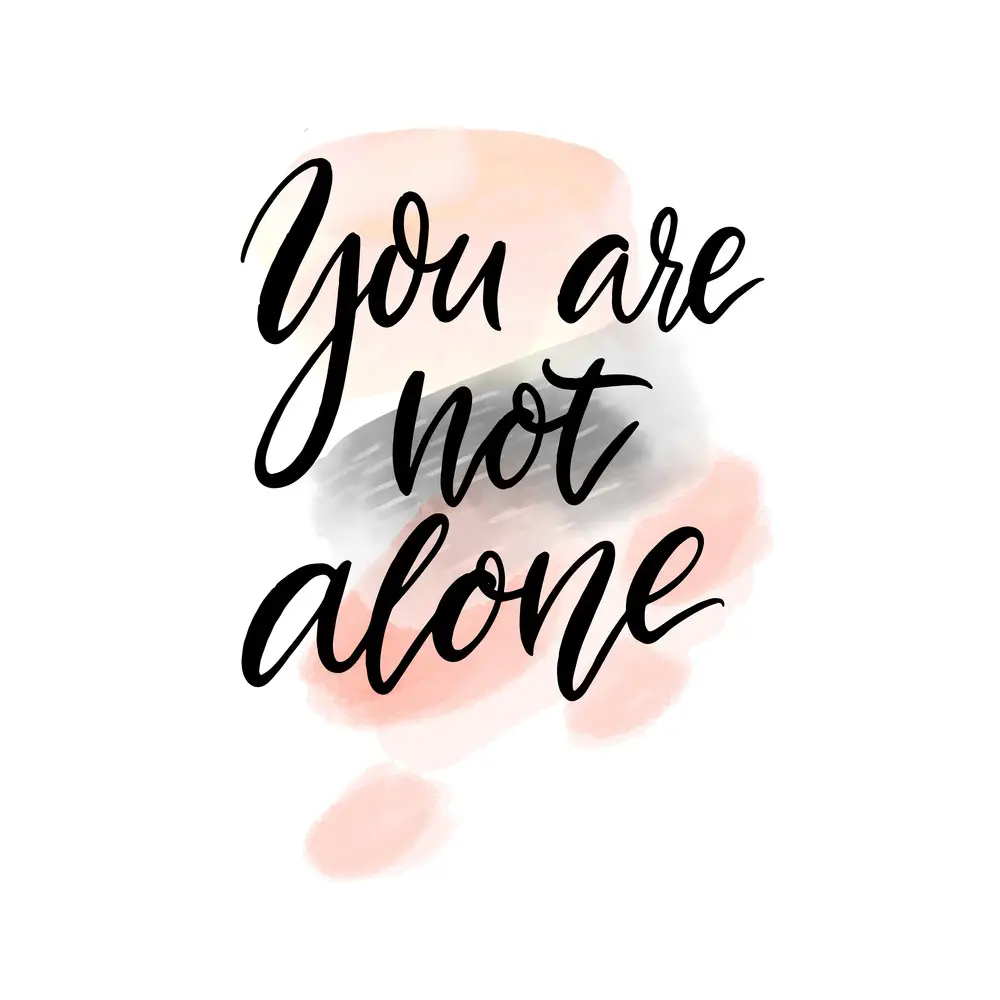
- 7 Ideas to Help You Relax and Unwind on a Family Vacation - April 27, 2025
- How Having Cybersecurity Protection Helps You Relax - April 25, 2025
- 8 Reasons Why Spending Time Outside Calms You Down - April 25, 2025
This site contains affiliate links to products. We will receive a commission for purchases made through these links.


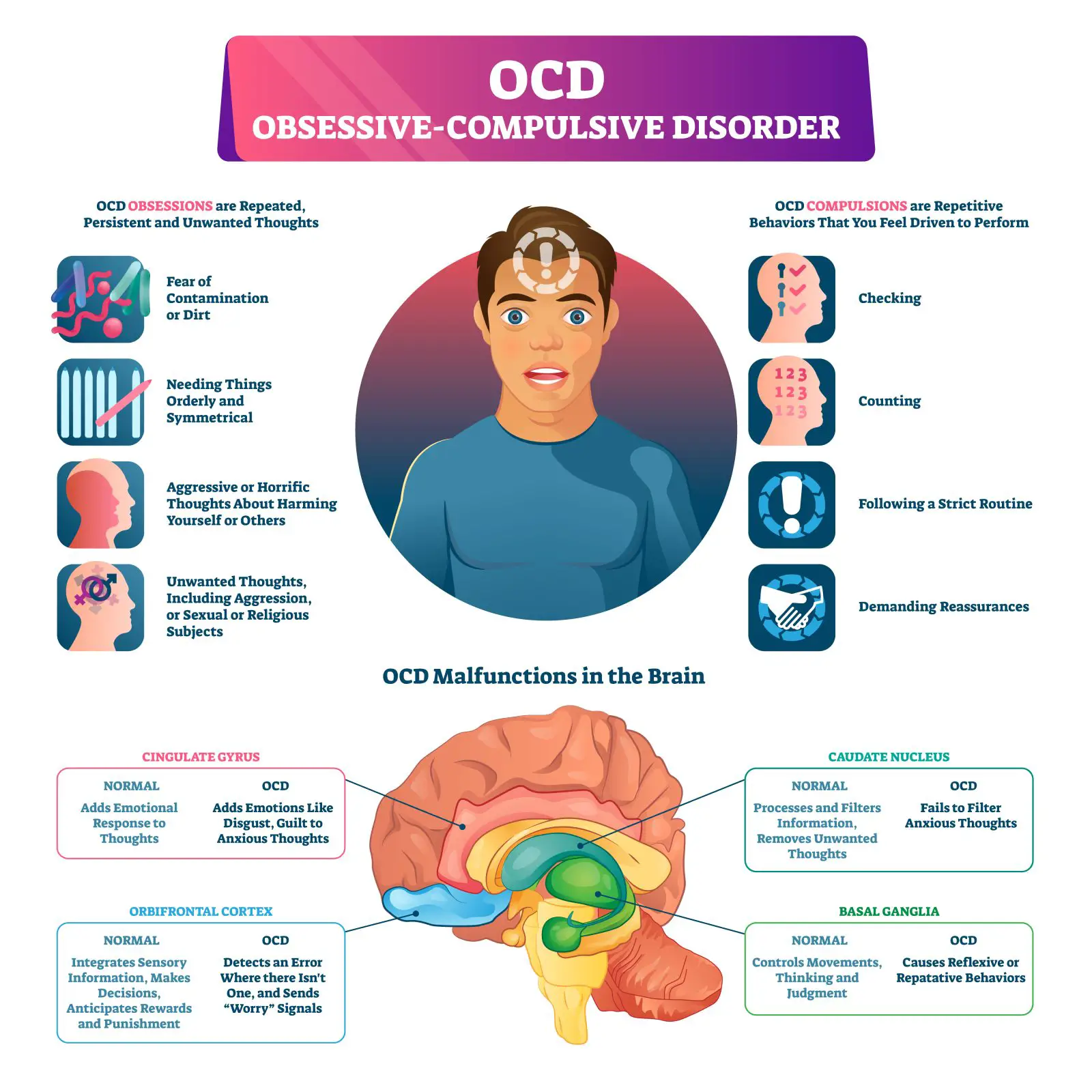 What is OCD?
What is OCD? Factors that Worsen OCD
Factors that Worsen OCD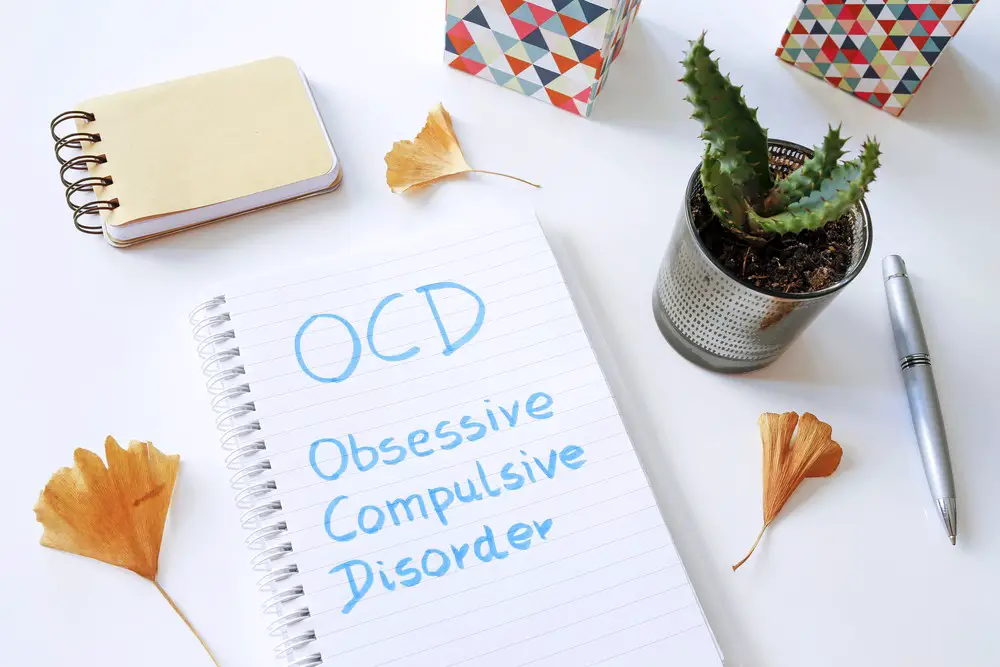 Mental Health and OCD
Mental Health and OCD Is It Time for an SOS? When to Seek Therapy for OCD
Is It Time for an SOS? When to Seek Therapy for OCD Genetics and OCD
Genetics and OCD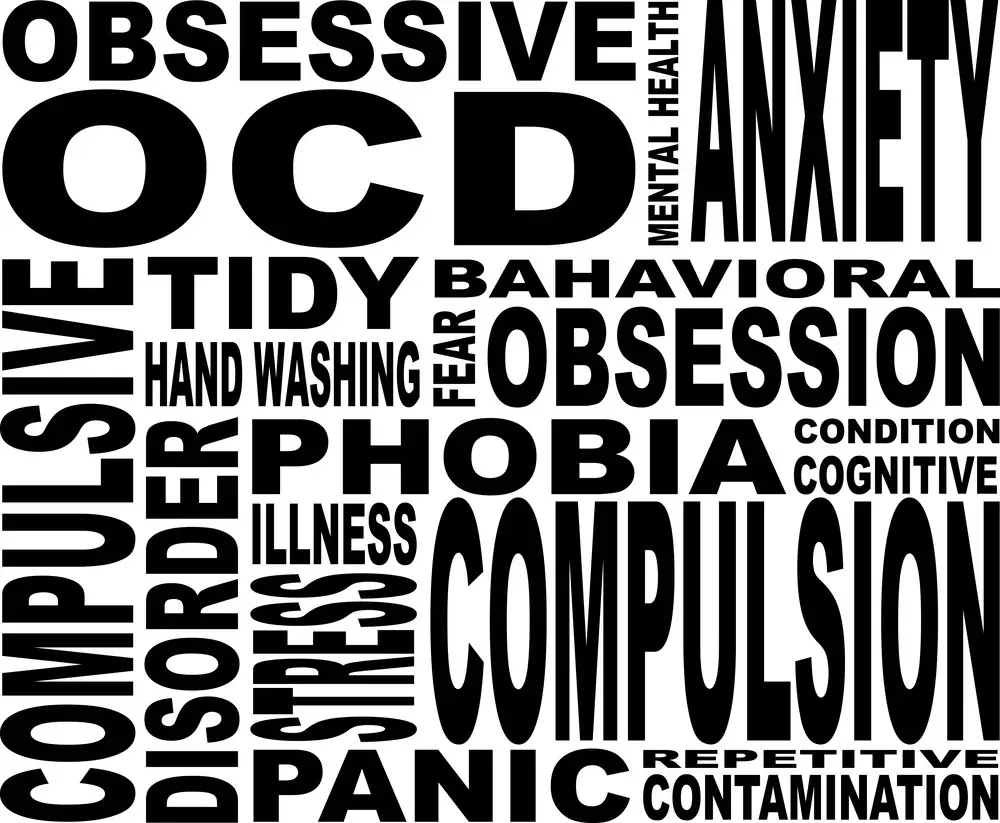 Treatment Options for OCD
Treatment Options for OCD Coping Mechanisms
Coping Mechanisms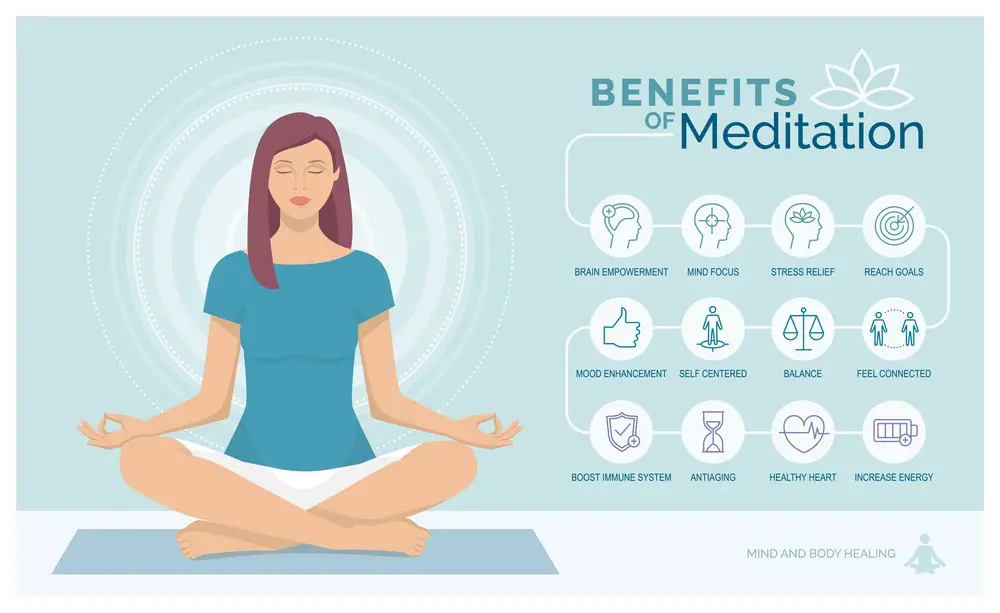 Effects of OCD
Effects of OCD
